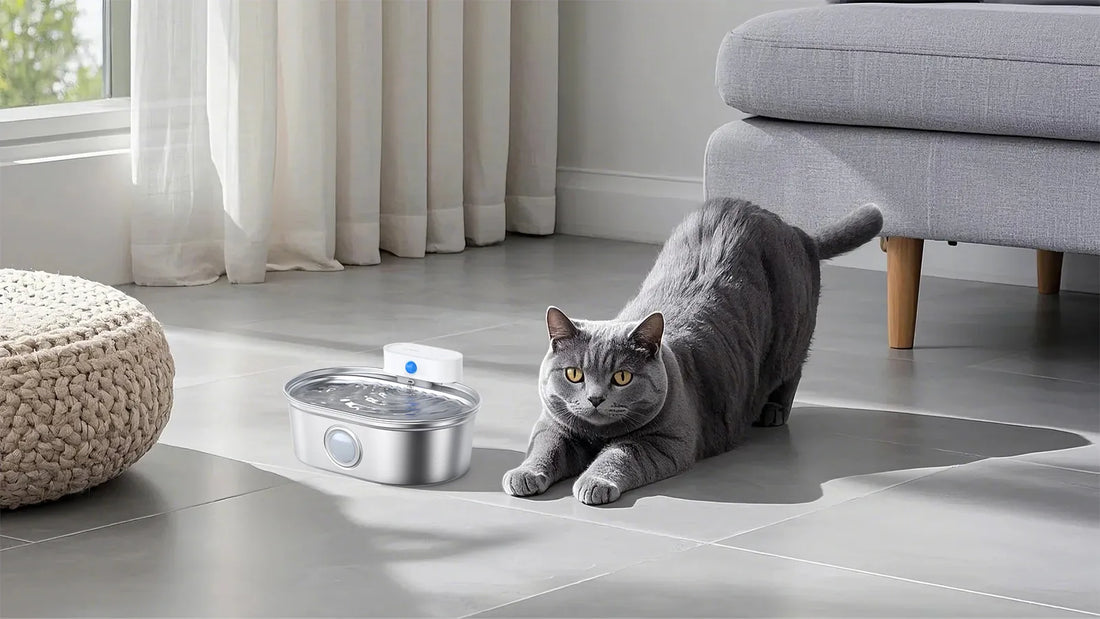For many pet lovers, the joy of having a furry companion is unparalleled. However, pet allergies can turn this joy into discomfort, causing symptoms like sneezing, itchy eyes, and even respiratory issues. If you’re one of the millions of people who suffer from pet allergies, you’ve likely wondered: can air purifiers help with pet allergies? The answer is more nuanced than a simple yes or no. This article explores the science behind air purifiers, how they work, and whether they can truly make a difference for pet allergy sufferers.
Understanding Pet Allergies
Pet allergies are triggered by proteins found in an animal’s skin cells, saliva, and urine. These proteins, known as allergens, can become airborne and linger in your home, even if you clean regularly. Common symptoms of pet allergies include sneezing, runny nose, itchy eyes, and skin rashes. For some individuals, exposure to pet allergens can even lead to asthma attacks or other severe respiratory issues.
How Air Purifiers Work
Air purifiers are designed to improve indoor air quality by removing pollutants, allergens, and other particles from the air. Most air purifiers use a combination of filters, such as HEPA filters, activated carbon filters, and ionizers, to capture and neutralize airborne contaminants. HEPA filters, in particular, are highly effective at trapping microscopic particles, including pet dander, pollen, and dust mites.
Can Air Purifiers Help with Pet Allergies?
The effectiveness of air purifiers in managing pet allergies depends on several factors, including the type of purifier, the size of the room, and the severity of your allergies. Here’s how air purifiers can help:
1. Removing Pet Dander
Pet dander, which consists of tiny flakes of skin shed by animals, is a common allergen. HEPA filters can capture these particles, reducing their presence in the air and minimizing your exposure to allergens.
2. Reducing Airborne Allergens
Air purifiers can also remove other allergens, such as pollen and dust, which can exacerbate pet allergy symptoms. By improving overall air quality, purifiers can help create a healthier living environment.
3. Neutralizing Odors
While not directly related to allergies, some air purifiers with activated carbon filters can help eliminate pet odors, making your home more pleasant to live in.
Limitations of Air Purifiers
While air purifiers can be beneficial, they are not a cure-all for pet allergies. Here are some limitations to keep in mind:
1. They Don’t Remove Allergens from Surfaces
Air purifiers only address airborne allergens. Pet dander can still settle on furniture, carpets, and other surfaces, so regular cleaning is essential.
2. They May Not Be Enough for Severe Allergies
If you have severe pet allergies, an air purifier alone may not provide sufficient relief. You may need to combine it with other strategies, such as allergy medications or immunotherapy.
3. Not All Air Purifiers Are Created Equal
Some air purifiers are more effective than others. Look for models with HEPA filters and high Clean Air Delivery Rates (CADR) for the best results.
Tips for Managing Pet Allergies
In addition to using an air purifier, here are some practical tips for managing pet allergies:
1. Keep Pets Out of the Bedroom
Your bedroom should be a sanctuary free from allergens. Keeping pets out of this space can help you sleep better and reduce allergy symptoms.
2. Bathe and Groom Your Pets Regularly
Regular grooming can help reduce the amount of dander and allergens your pet sheds. Consult your veterinarian for advice on safe grooming practices.
3. Clean Your Home Frequently
Vacuuming, dusting, and washing bedding regularly can help remove allergens from your home. Use a vacuum cleaner with a HEPA filter for best results.
4. Consider Allergy-Proof Bedding
Allergy-proof mattress and pillow covers can help create a barrier against allergens, improving your sleep quality.
Choosing the Right Air Purifier
If you decide to invest in an air purifier, here are some factors to consider:
1. Room Size
Choose an air purifier that’s appropriate for the size of the room where you’ll be using it. A purifier that’s too small won’t be effective, while one that’s too large may be unnecessarily expensive.
2. Filter Type
Look for air purifiers with HEPA filters, as they are the most effective at capturing pet allergens. Some models also include activated carbon filters for odor control.
3. Noise Level
If you plan to use the air purifier in a bedroom or living area, consider the noise level. Some models are designed to operate quietly, ensuring they don’t disrupt your daily activities.
4. Maintenance Costs
Air purifiers require regular filter replacements, so factor in the cost of maintenance when making your decision.
Other Strategies for Reducing Pet Allergies
While air purifiers can be a valuable tool, they are just one piece of the puzzle. Here are some additional strategies to consider:
1. Use an Air Conditioner or Dehumidifier
Air conditioners and dehumidifiers can help reduce humidity levels in your home, making it harder for allergens to thrive.
2. Wash Your Hands After Petting Your Pet
Washing your hands after interacting with your pet can help prevent allergens from spreading to your face and eyes.
3. Consult an Allergist
If your symptoms are severe, consider consulting an allergist. They can recommend treatments, such as allergy shots or prescription medications, to help manage your condition.
Living with pet allergies doesn’t mean you have to give up the joy of having a furry friend. By understanding how air purifiers work and combining them with other strategies, you can create a healthier, more comfortable environment for yourself and your pet. Whether you’re a long-time allergy sufferer or just starting to notice symptoms, taking proactive steps can make all the difference. So, can air purifiers help with pet allergies? The answer is a resounding yes—when used as part of a comprehensive approach to managing allergens.













